A range hood is a crucial part of any kitchen you’re planning to do a lot of cooking in. Excluding pulling up food odors and controlling your house from stinking like whatever you’ve been cooking for hours, a range hood can be a stunning focal point of your space, adding a flair and elegance to your kitchen. What you will find here are some must-know facts and design styles regarding range hoods before choosing one.
We have also gathered 25+ beautiful designer kitchens to show you examples of just how sleek and extravagant a range hood can look.
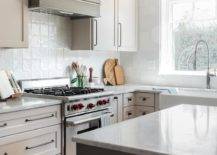

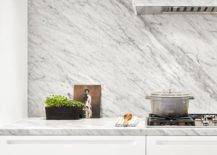
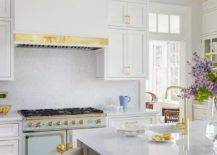
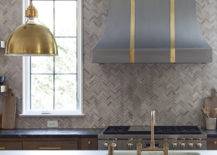
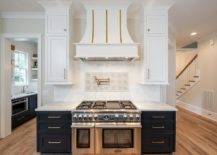
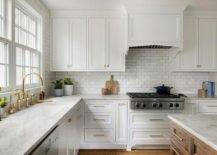
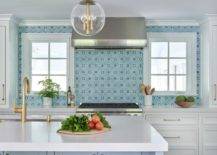
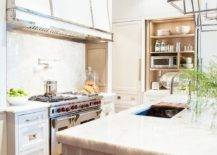
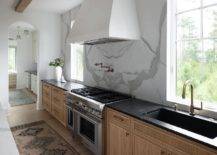
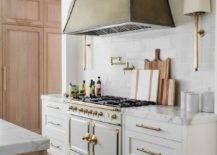
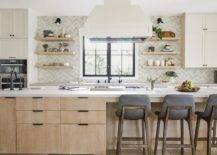
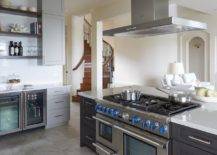
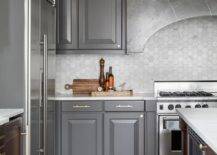
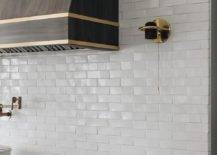
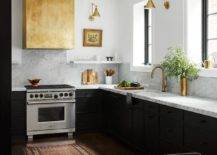
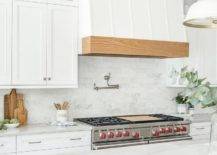
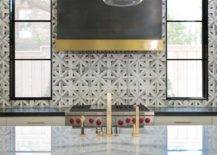
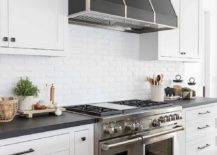
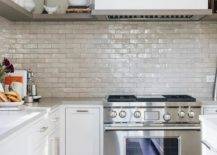
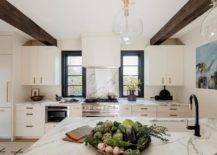
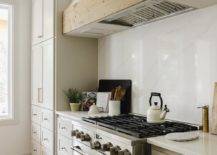
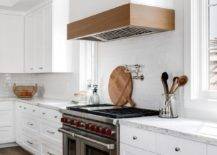
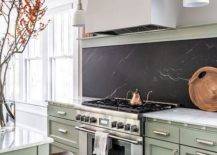
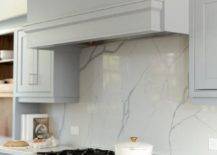
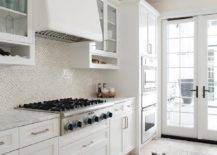
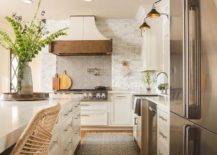
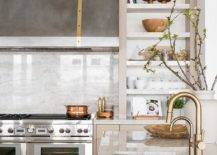
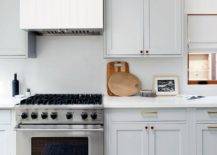
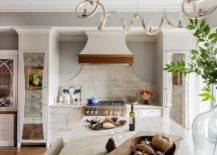
Suit Your Space
When it comes to selecting a range hood you want something that is equal parts functional and fashionable. Begin by looking at the proportions. A typical design challenge with a range hood is that, functionally, they need to sit 30-36 inches above the range.
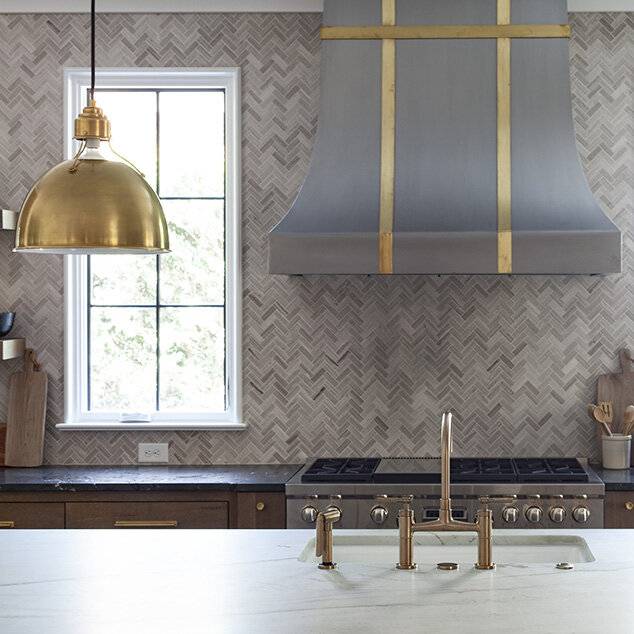
This can make the overall size of your hood extremely large depending on your ceiling height and the width of your range. While a range hood can be a lovely statement, you don’t want it to feel too hefty and ultimately take over your kitchen.
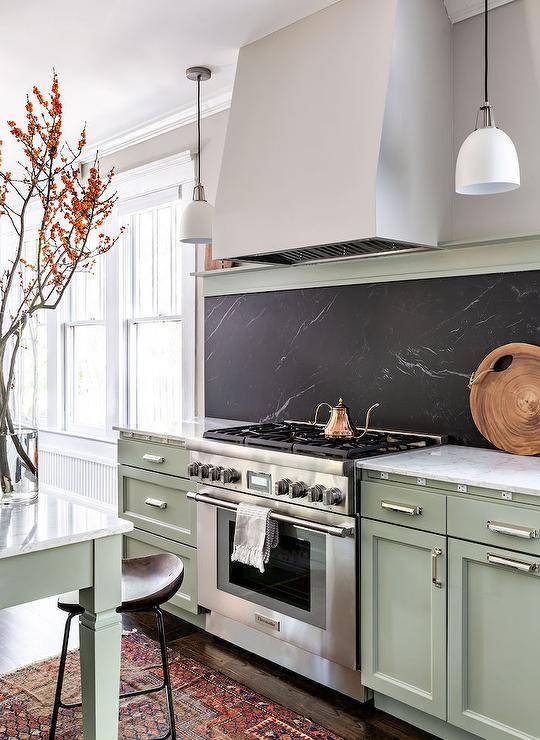
An excellent way to avoid this is to have the hood vent out the wall rather than extending it to vent out the ceiling. This way, you can have a design that tapers at the top or front instead of a large rectangular block, making it feel more delicate.
Range Hood Ideas
You will want to consider the actual style you’re going for. Here is a quick list of the most popular styles:
- Metal range hoods: A traditional, vintage feel that will stand the test of time; can also look great with industrial-style kitchens.
- Wood-paneled range hoods: A bit more transitional but works with various styles and design tastes.
- Drywalled range hoods: Modern and clean, especially when combined with stone or tile.
Things to Know About Different Styles and Materials
Range Hoods by Materials
Metal Range Hood
Metal range hoods are typically stainless steel. Details like rivets or grommets can be made of many different metal finishes and lend a more vintage or industrial feel. This style of range hood will have great emphasis because the finish is different from the surrounding cabinets. You will want to be careful not to let the scale become too overwhelming for the space.
Buying a metal hood that matches your range is the most straightforward route, but interior designers can help create custom hoods as well.
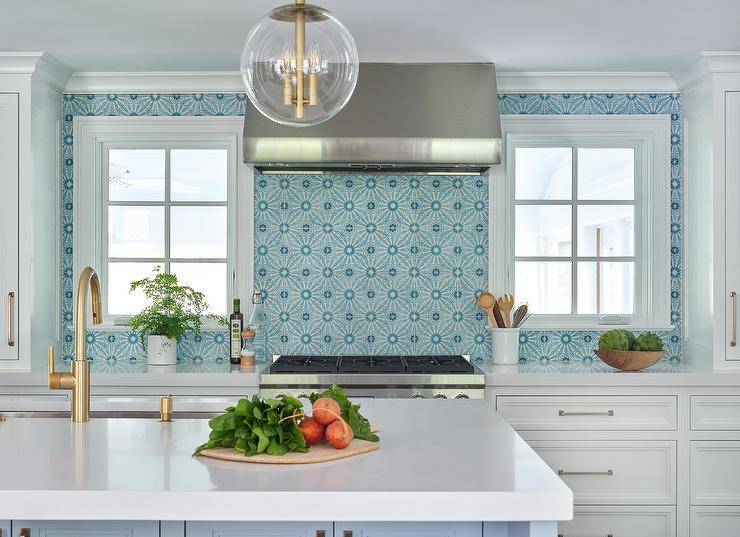
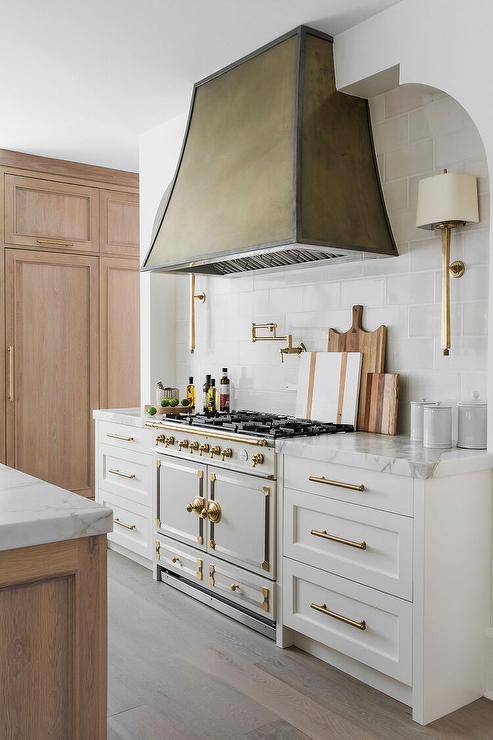
Wood Range Hood
You can purchase wood hoods individually online, finished or unfinished. Before you buy, take note of your hood blower insert and make sure it will fit safely inside your pre-built hood. If you’re doing a custom kitchen, these are generally built along with the rest of the cabinets to ensure the finishes and profiles match.
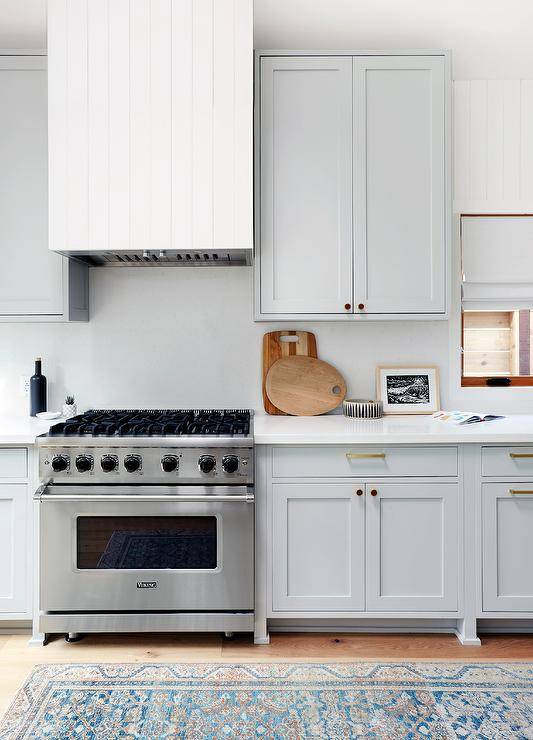
Wood Range Hoods have also become a very popular DIY project, with many enthusiastic DIYers taking on these projects themselves. You can purchase a blower that you set it and build your own style of range hood around it.
Drywall Range Hood
Built out of the same drywall material as your walls, these hoods will have a hood blower installed inside. They’re often painted with unique treatments or plasters to emphasize their look. This is the type you see in California-style homes often, with a rustic-looking beam across the bottom.
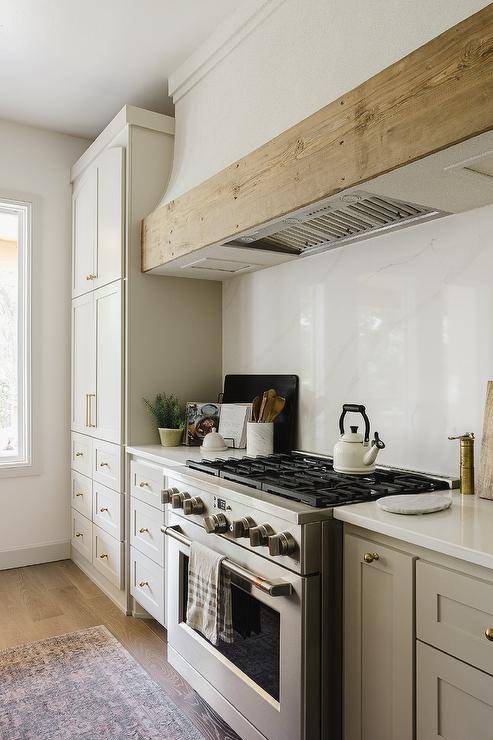
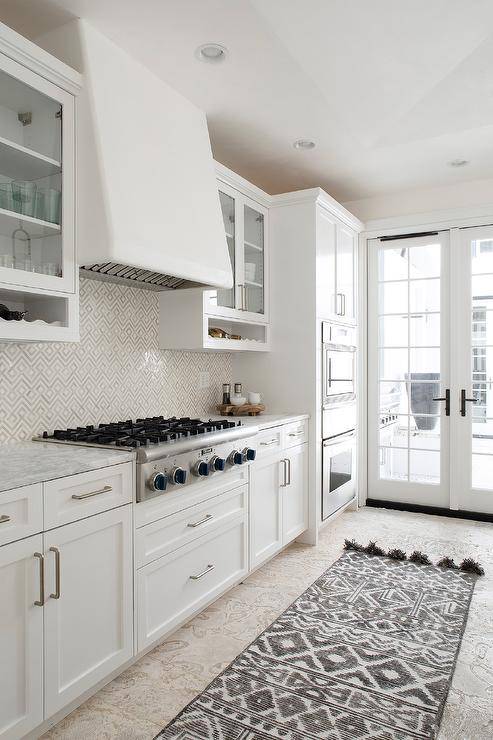
Range Hoods By Style
Concealed
Some prefer the hood to be entirely hidden. If that’s you, the concealed hood would be the best option. A concealed hood will be installed so it’s hidden by hanging cabinets. This type of hood is proper when you need to make the most of your kitchen space, and it also offers the opportunity for more storage when you don’t have as much.
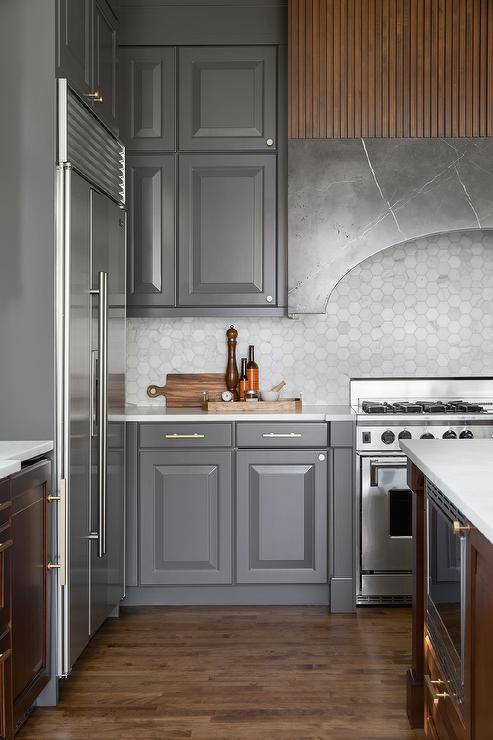
Island Hood
While most stovetops are against the wall, the island hood is somewhat of a floating hood. It seems to be floating because it’s hanging over the island where the stovetop is present. This type of hood uses a chimney-like system when removing the fumes from the air while you’re cooking.
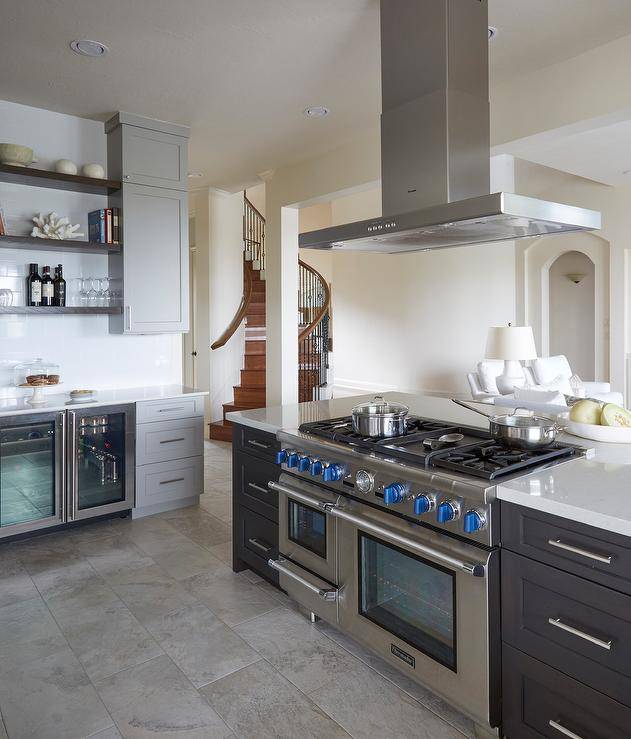
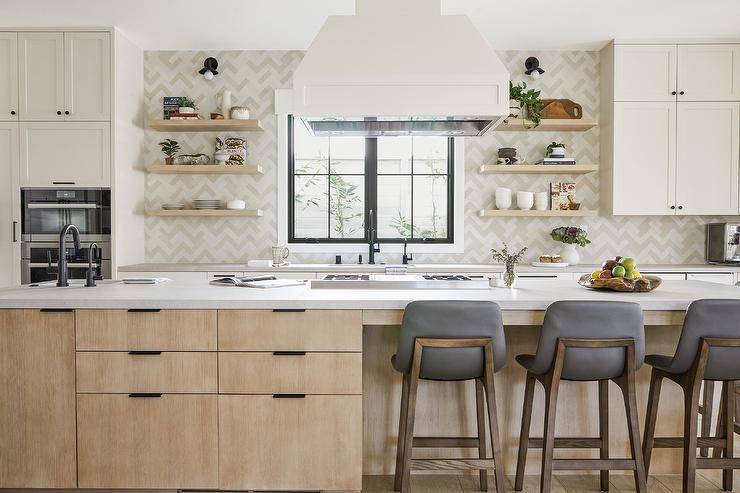
Mantle
A mantle hood allows you to design a hood that fits in with the other design elements in your kitchen. This allows you to make the hood a key component of your kitchen renovation without sacrificing any piece of the overall design. Keep in mind this hood type gives you design freedom that you might not get with the other types of hoods that we’ve featured above.
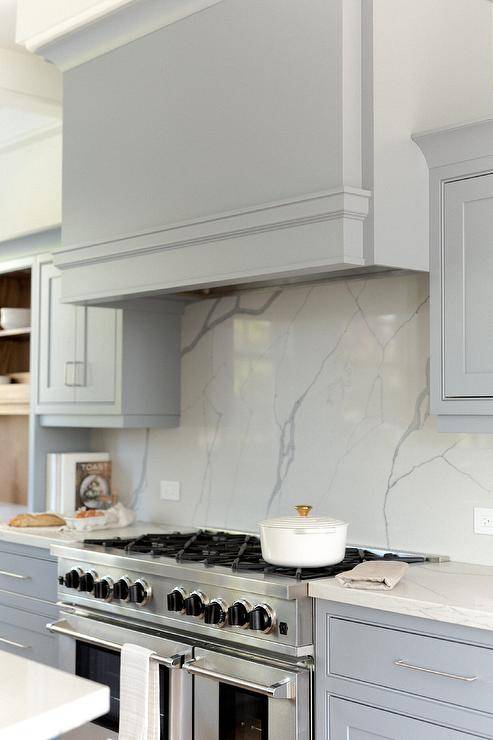
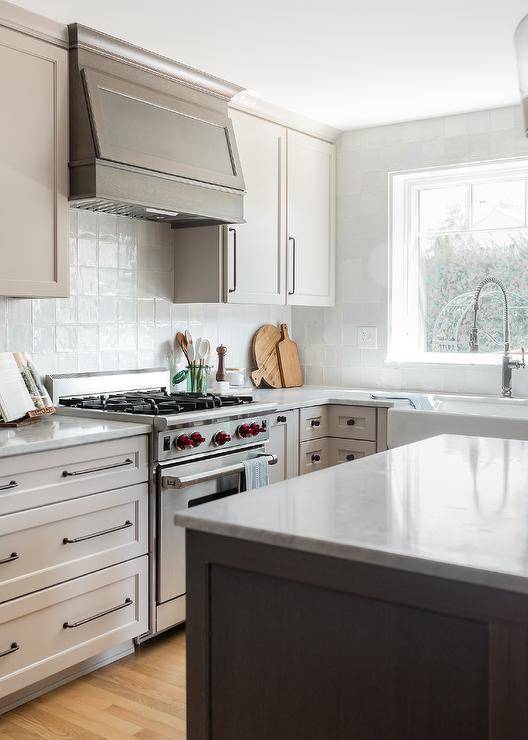
Chimney
If you don’t have kitchen cabinets surrounding your kitchen wall where the stovetop is, a chimney hood will work for you. This type of hood is attached directly to the wall.
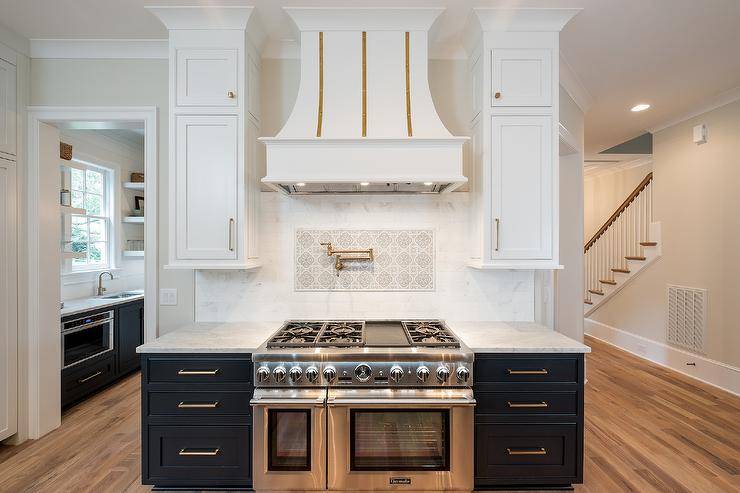
Depending on how you want things to look, you could have the hood reach entirely to the ceiling, or you could design it to have the same look and texture as the other cabinets in your kitchen.
No matter your style choice or design, installing a range hood in your kitchen will breathe new life and style into your cooking space.
Here are some of our absolute design favorites:
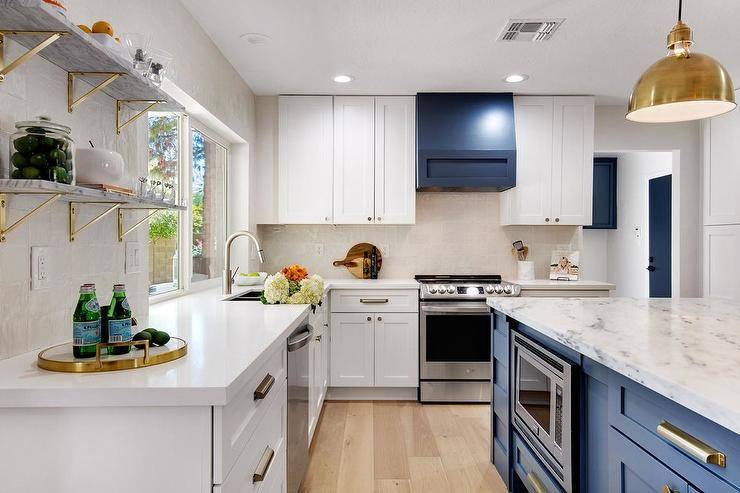
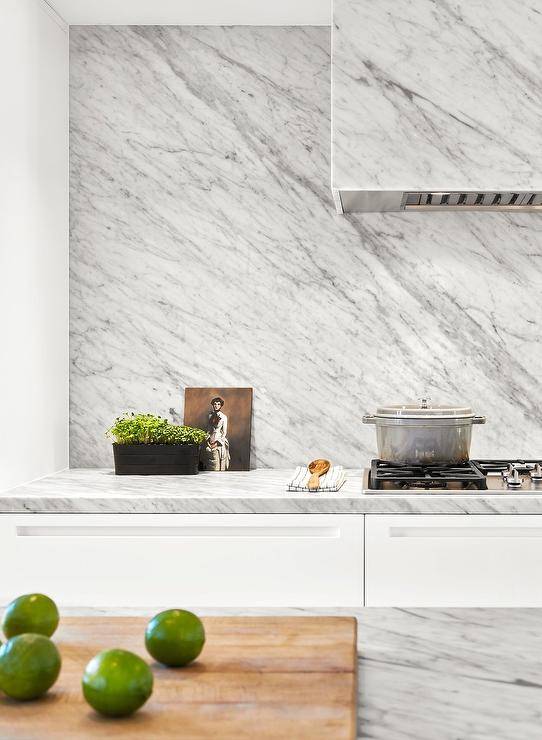
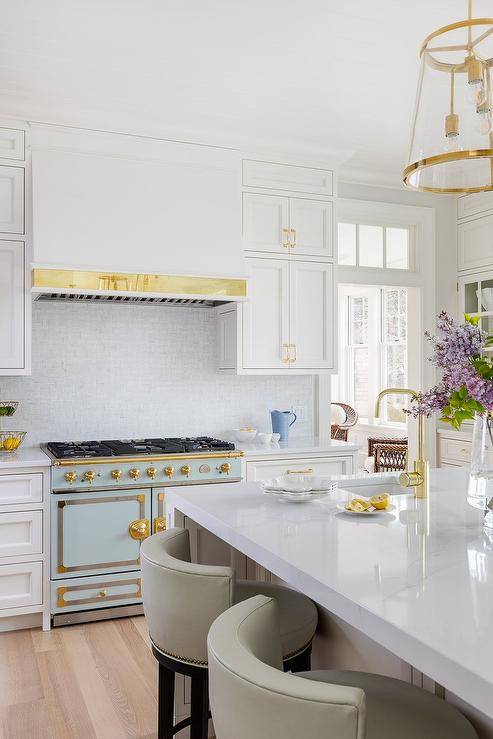
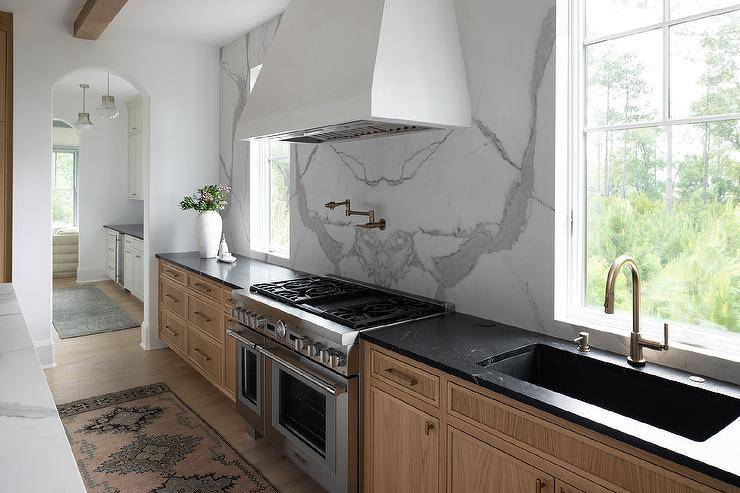
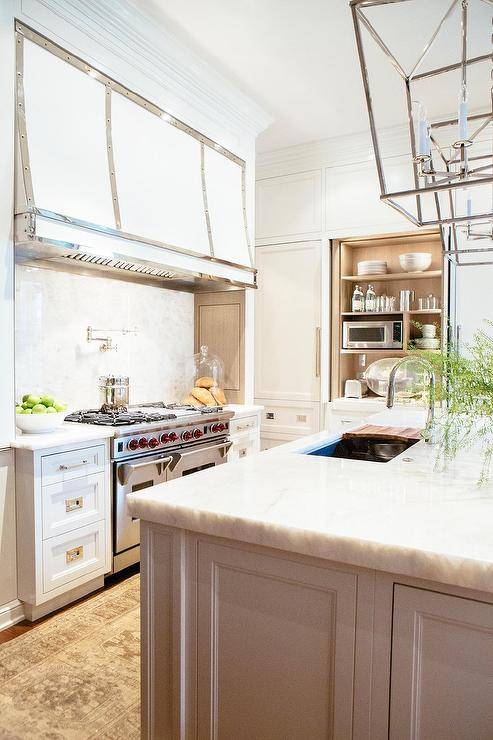
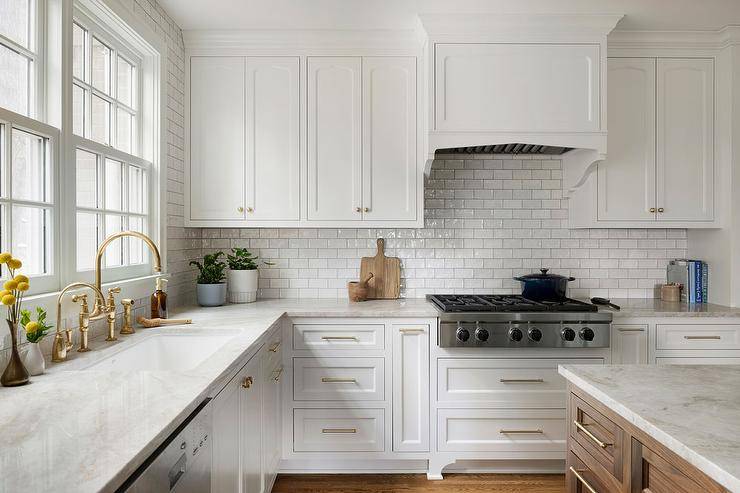
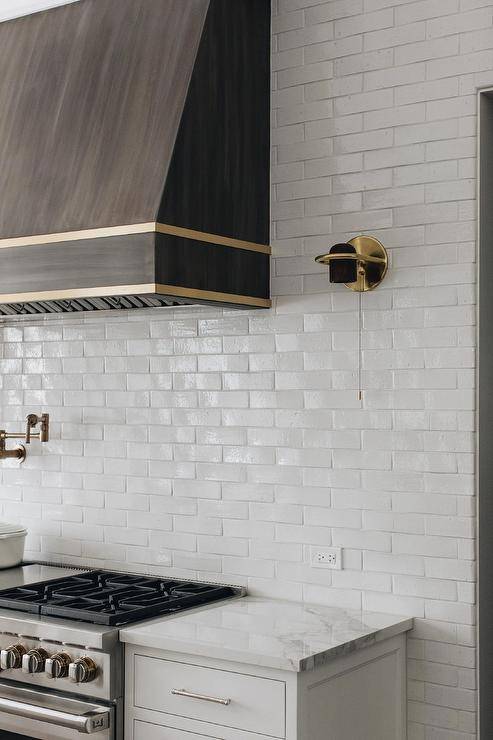
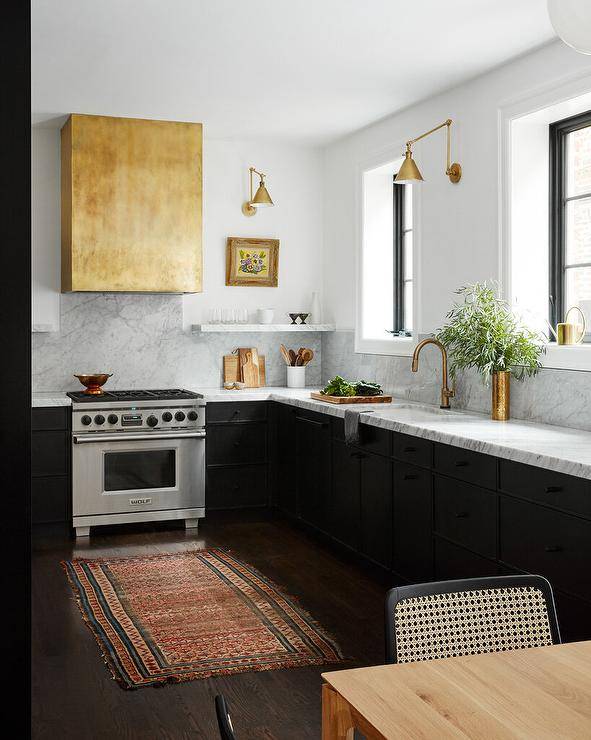
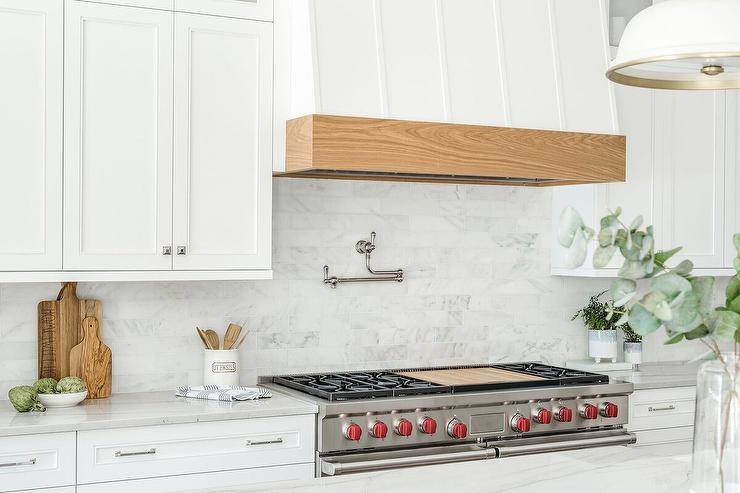
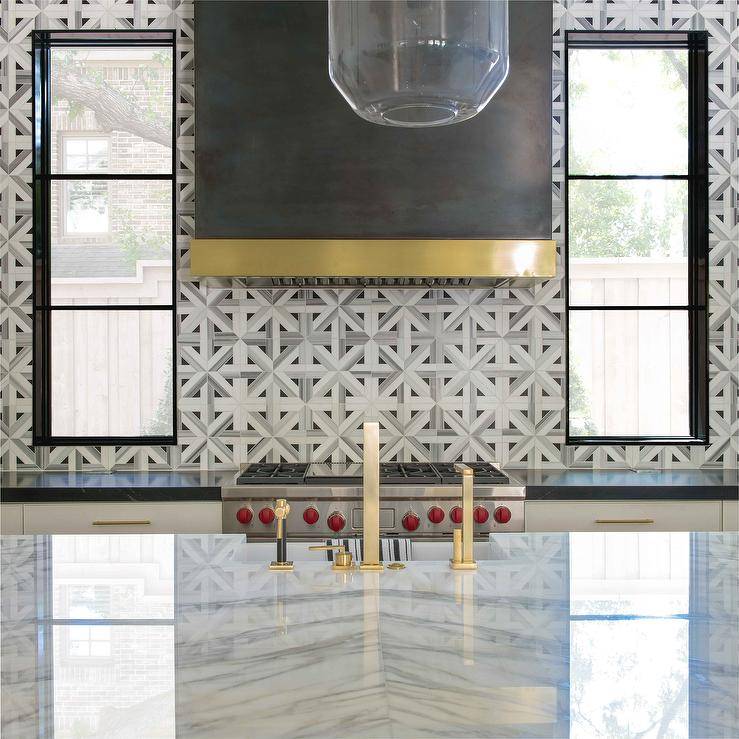
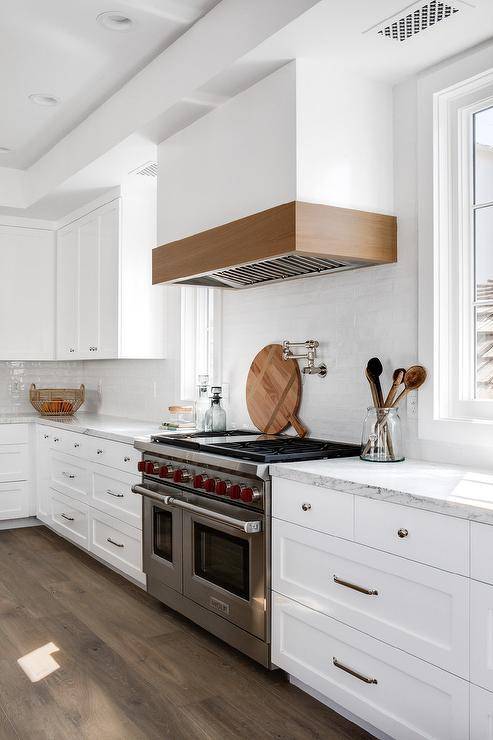
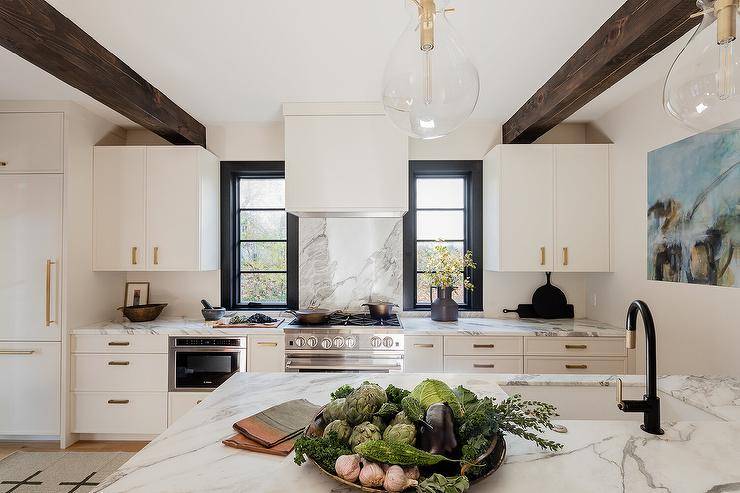
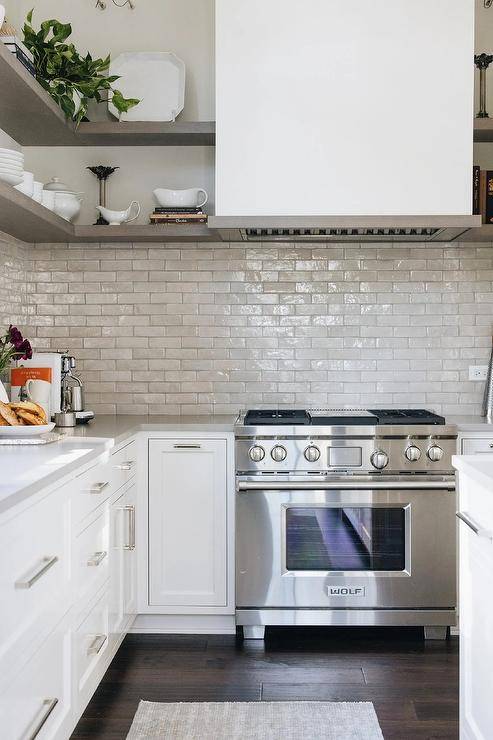
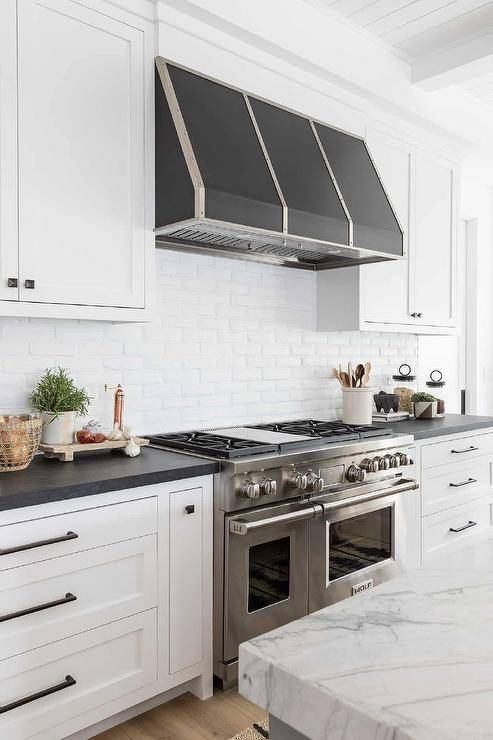
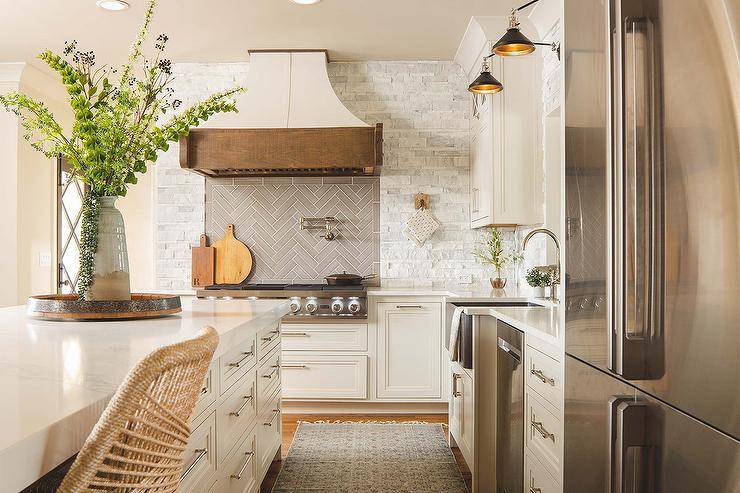
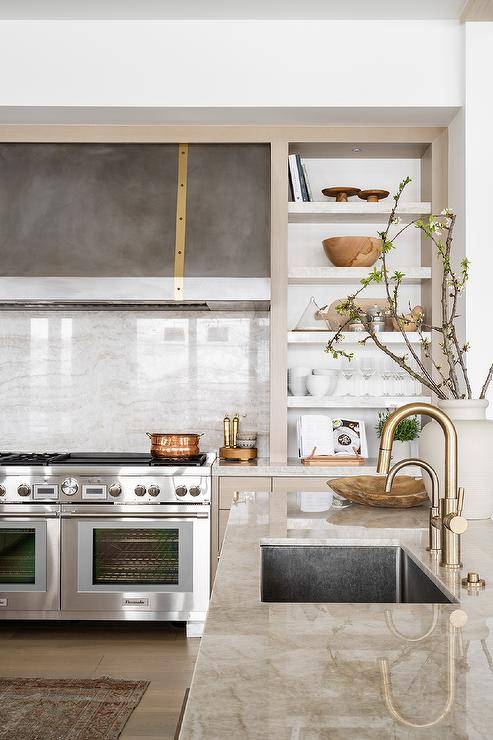
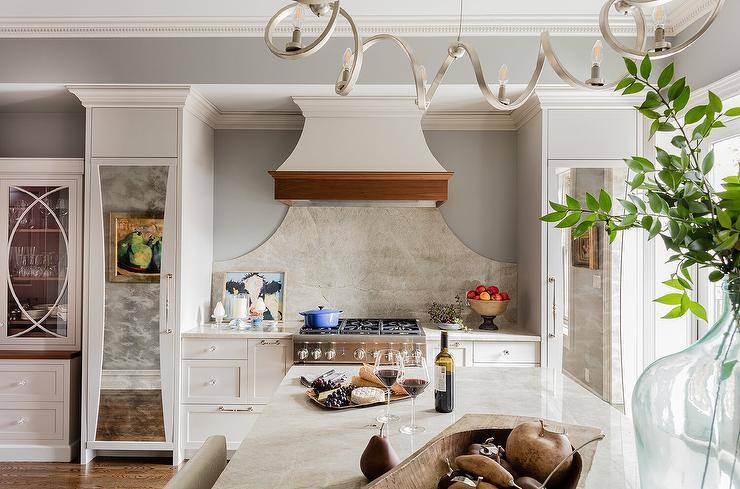
Frequently Asked Questions (FAQs)
Does your range hood have to match your appliances?
What is ductless range hood?
Does the range hood have to match the range size?
Is there an alternative to a range hood?
If you need more design help in the kitchen, here are some other articles you may enjoy:
You're reading Range Hood Ideas to Fit In With Any Kitchen Design Style, originally posted on Decoist. If you enjoyed this post, be sure to follow Decoist on Twitter, Facebook and Pinterest.
from decoist https://ift.tt/w5ysKl8

0 comments: